We operate a Java application that we did not develop. This application uses quite a lot of memory for certain tasks, depending on the data, that is manipulated, up to 4GB. At other times, very little memory is needed, around 300MB.
Once the JVM grabs hold of a lot of memory, it takes a very long time until the garbage is collected and even longer until memory is returned back to the operating system. That's a problem for us.
What happens is as follows: The JVM needs a lot of memory for a task and grabs 4GB of Ram to create a 4GB Heap. Then, after processing finished, the memory is filled only 30%-50%. It takes a long time for memory consumption to change. When I trigger a GC (via jConsole) the heap shrinks below 500MB. Another triggered GC and the heap shrinks to 200MB. Sometimes memory is returned to the system, often not.
Here is typical screenshot of VisualVM. The Heap is collected (Used heap goes down) but Heap size stays up. Only when I trigger the GC through the "Perform GC"-Button, Heap size is reduced.
How can we tune the GC to collect memory much earlier? Performance and GC-Pause-Times are not much of an issue for us. We would rather have more and earlier GCs to reduce memory in time. And how can we tweak the JVM to release memory back to the operating system, making the memory used by the JVM smaller?
I do know -XX:MinHeapFreeRatio and -XX:MaxHeapFreeRatio, which helps a bit, but watching the heap with VisualVM shows us, that it's not always obeyed. We set MaxHeapFreeRatio to 40% and see in VisualVM, that the heap is only filled to about 10%.
We can't reduce the maximum memory (-Xmx) since sometimes, for a short period, a lot of memory is acutally needed.
We are not limited to a particular GC. So any GC that solves the problem best can be applied.
We use the Oracle Hotspot JVM 1.8
